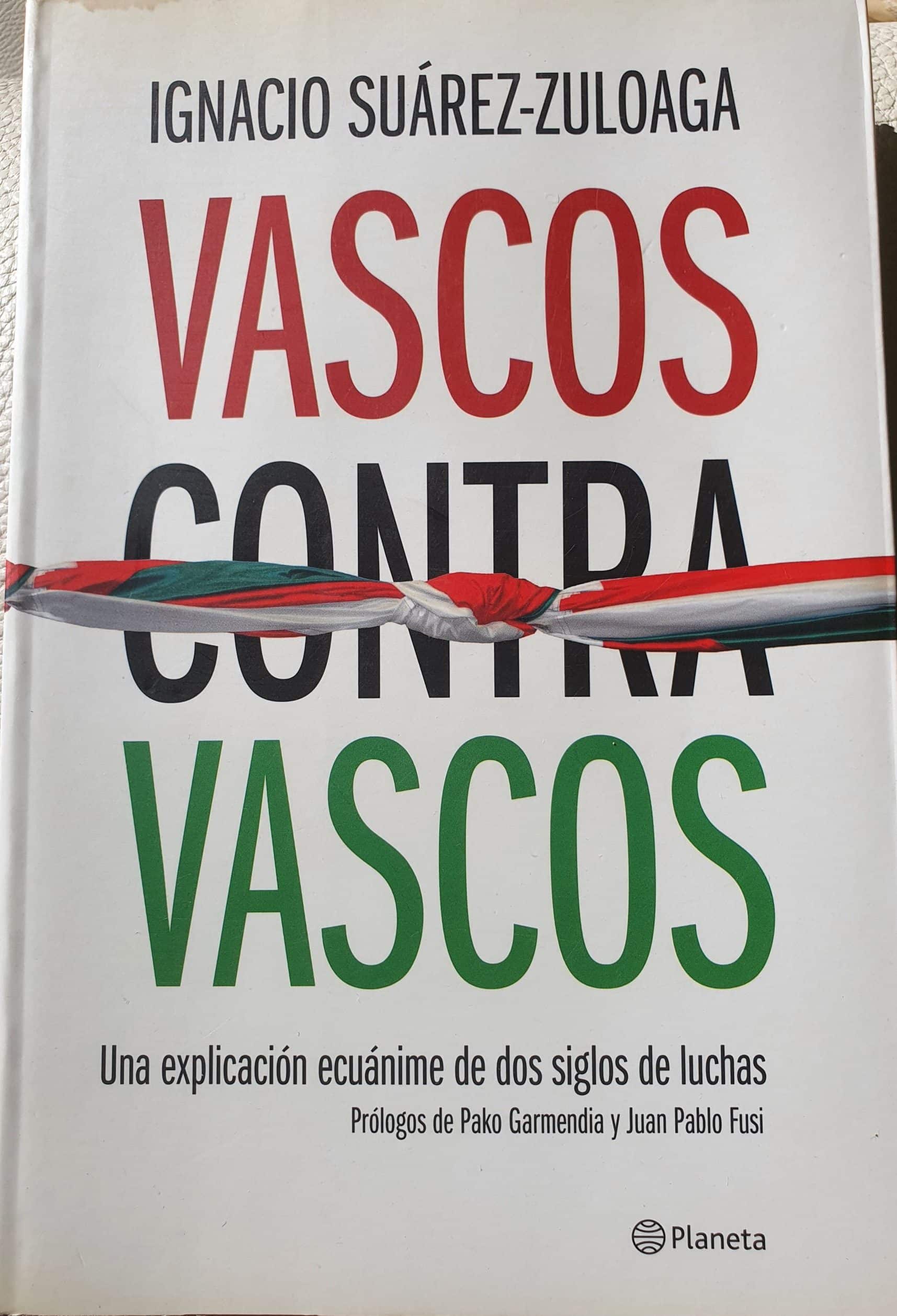
VASCOS CONTRA VASCOS (ENGLISH)
This book has a series of singularities that attract attention: The first is that it has prologues by two very prominent personalities in the intellectual debate about the Basque Country, and which are associated with different national sentiments. On the one hand, Dr. Juan Pablo Fusi, from San Sebastian, professor of Spanish history at the Complutense University and doctor honoris causa from New York University. And on the other, Dr. Pako Garmendia, from Azpeitia, professor of political science at the University of Deusto, former head of Basque language in the Basque Government and member of the board of trustees of half a dozen Basque foundations. The fact that two personalities with sentimentally different perspectives preface this book – Vascos contra Vascos – is already an indicator of the acceptance of its contents. It is also surprising that the book is organized around the answer to six questions:
- What conditions must have been in place to generate such a lasting social confrontation? The text makes an analysis of the social, cultural, economic and political factors of the Basque Country from the Modern Age to the 21st century.
- What was that Basque identity really like that, being traditional, continues to cause so much controversy? To this question, the book Vascos contra Vascos describes the identity of both the rural population and the city.
- What is the essence of violence, its protagonists and its ultimate causes? The flags, the speeches, the manifestos use events from the past to defend the ideas and interests that are revealed in the book.
- How did the violent episodes unfold? The title Basques against Basques advances the answer: it was some Basques against others, regardless of whether other non-Basques at one time or another supported the social groups in conflict.
- What are the reasons for the current dispute between the parties? Parties often refer to historical background to justify their current positions; this is sometimes true and at other times there is no relationship between what is now claimed and what previous generations defended.
- What are the future scenarios for the Basques? Another important novelty is the elaboration of several future scenarios among which reality may develop in future years (to 2007). The reader can currently check how much Ignacio Suárez-Zuloaga got right and wrong when doing them.
One last peculiarity of this book is that the author begins the book by making a kind of ideological-sentimental nude of his family. At the beginning of Vascos contra Vascos, he presents a genealogy of the families of his father and mother, adding to the people the position that they maintained in the social groups in conflict, from the seventeenth century to the twenty-first century. It is a way of predisposing the reader to accept the story and arguments that are presented.
Author: Dr. Ignacio Suárez-Zuloaga.
Edit: Planeta.
Year: 2007.
259 pages. 20 photographs. 12 graphs and tables.

